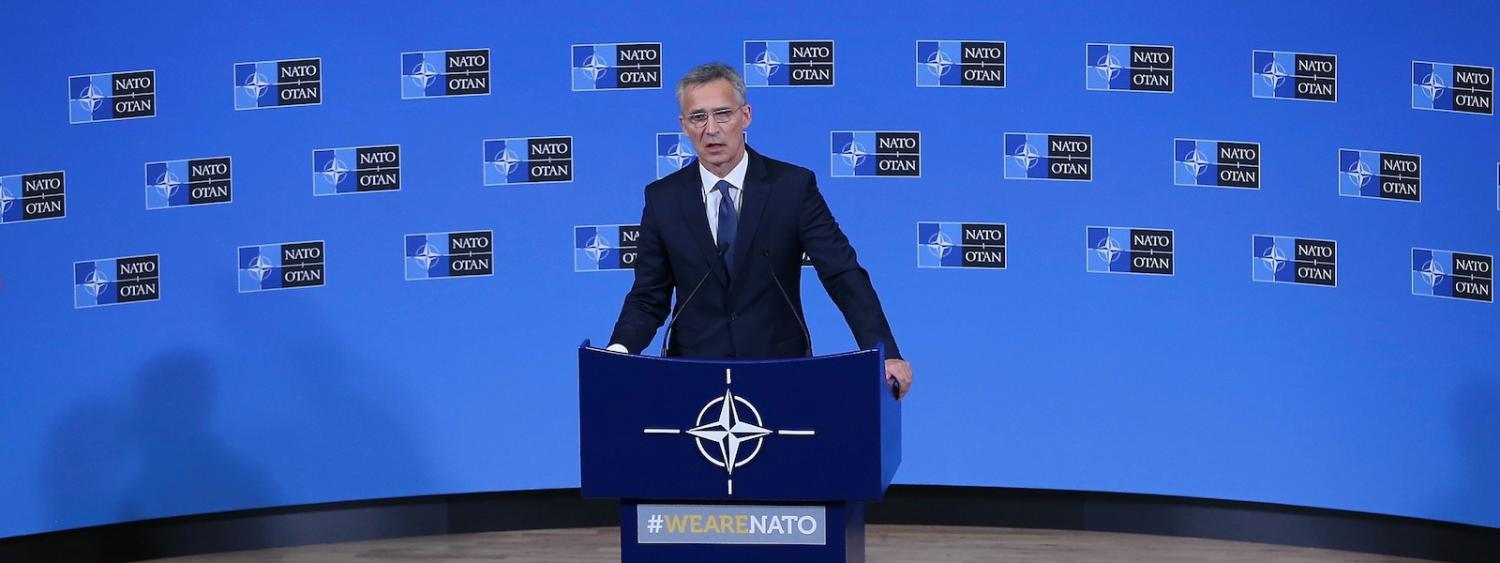In February last year, Russian Foreign Minister Sergey Lavrov made a startling comment at the 2017 Munich Security Conference. He asserted that “the post–Cold War order” had come to an end, and called instead on “leaders with a sense of responsibility” to support, in its place, what he called a “post-West world order”.
Lavrov’s comment was not much reported at the time, largely because it was swamped by coverage of the big issue of the day: whether the US remained committed to its fundamentally important security guarantees to Europe and to NATO. And it was no doubt dismissed as the sort of self-interested and mischievous comment a Russian foreign minister under Putin would make anyway.
But was Lavrov just being Russian, or actually prescient? Last February there was already ample evidence for the latter, given the mess that Europe was in and the new and alarming doubts that had emerged about the Trump administration’s foreign, security, and trade policies. Of course, Lavrov was being both Russian and (probably) prescient.
Fast forward sixteen months and the evidence now seems much clearer that the West, as it was, is facing an existential crisis. In May 2017, following a meeting of G7 leaders in Sicily with US President Donald Trump, and having received a stern US lecture on defence expenditure at the NATO summit in Brussels, German Chancellor Angela Merkel concluded that “the times in which we can fully count on others are to some extent over”. “We Europeans”, she added, “have to take our destiny into our own hands”.
America first, she obviously felt, increasingly meant America only.
Since then, the list of problems facing the Western countries in Europe has grown. Brexit remains a running sore. Merkel herself has been weakened, and has been unable to exercise the leadership role she once had, by an unconvincing electoral outcome, the 171 days it took to form a new grand coalition government, and disagreements on migration and other policy within that government.
New populist/nationalist governments have been elected or re-elected in Austria, Hungary, the Czech Republic, and, above all, Italy, Europe’s fourth-largest economy. That has also led to some major differences among EU members about policy; for example, the new Italian government’s support for the easing of sanctions against Russia, its intention not to adhere to Eurozone budgetary rules, and its refusal to accept further asylum seekers. The EU continues to be deeply split over its future shape, weakening support for the European project and its institutions.
I could go on, the list is much longer, but the trend is clear.
And the significant concerns other Western countries started to have about US policy under Trump, the clear ideological differences, have hardened considerably since March 2017. The most striking recent example of this has been the President’s decision to go ahead and impose tariffs on a range of European and Canadian products, despite personal pleas (in Washington) by French President Emmanuel Macron, Chancellor Merkel, and Canadian Prime Minister Justin Trudeau not to do this and to keep negotiating.
In fact, while we all would like the EU to open its markets more, it is hard to escape the feeling that Trump is treating America’s long-standing allies and friends more harshly than he is treating a range of non-Western countries. The juxtaposition of all of this with the Trump–Kim summit in Singapore was a potent demonstration of that.
The Europeans have found it particularly alarming that Trump has also linked, in some of his comments, the imposition of tariffs with the reticence of many NATO members, Germany in particular, to lift defence expenditure to meet the NATO target of 2% of GDP by 2024.
There is no doubt that the Europeans need to do more on defence. Germany has announced an increase to 1.5% of GDP by 2025, but that is still a long way short. Taking action against German vehicle exports to the US should, however, not be because Germany has been slow on defence expenditure.
US decisions on issues such as withdrawing from the Paris climate change agreement and rejecting the Iran nuclear deal have only served to underline that policy positions are diverging rapidly.
But the most significant signal of the distance opening up between the President and other Western leaders has been Trump’s petulant rejection of this year’s G7 communique, apparently as a result of quite unremarkable public comments made by Prime Minister Trudeau about the Canadian response to US trade policy.
The vitriol with which Trump did this is actually quite unprecedented among friends. That he did so in the form of a tweet from his aircraft on the way to meet Kim Jong-un only rubbed salt into an already raw wound. And the sycophantic amplification of the President’s rudeness by some of his officials was simply uncalled for.
In international relations, personal chemistry and trust between leaders is extraordinarily important. There is no doubt that, given Trump’s actions, much of that trust has now gone, even if other Western leaders understand that they need to work with their great and powerful ally. The disregard with which they have been treated will be remembered for a long time.
Merkel described Trump’s tweet as “sobering and depressing”. She added that “sometimes I get the impression that the US President believes that only one side wins and the other loses”.
And that distrust is filtering down within Europe. A YouGov poll taken for the German Press Agency just before the G7 summit found that a full quarter of those surveyed thought Trump should be dropped from participating.
Little wonder that a commentator in the German daily Die Welt described Trump’s tweet on 10 June as “Der Moment, an dem der Western zerbrach (The moment in which the West broke apart)”. That is no doubt over the top, but how is Lavrov’s post-West comment looking now?

